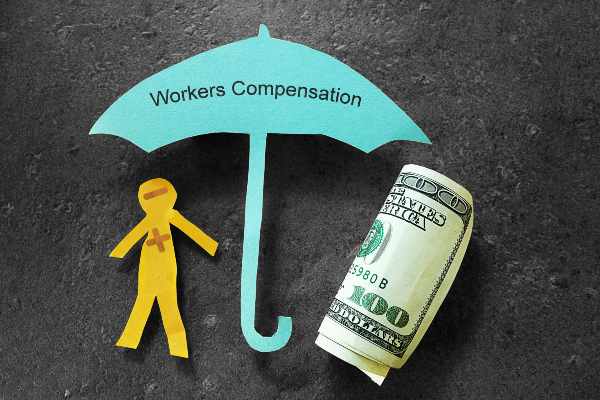Workplace accidents are not uncommon in Orlando and other parts of Florida. They often result in injuries that can either be permanent or fatal. According to the Bureau of Labor Statistics, fatal work injuries in Florida totaled 306 in 2019. Nationwide, there were a total of 5,333 fatal work injuries that same year.
With the number of workplace accidents and injuries, Florida law provides what is known as workers' compensation. Employees who get injured on the job are entitled to compensation benefits, but things don't always work that way. There are several complications when seeking workers' comp, making it essential to work with an Orlando workers' compensation lawyer.
Workers' compensation is insurance coverage purchased by an employer to provide benefits for employees who suffer on-the-job injuries or illness. Under Florida workers' compensation laws, a business with four or more employees, either full-time or part-time, must have workers' comp. The industry the business belongs to, and their status also determines if they should have workers' comp.
However, there are a few exceptions to businesses that can have this coverage. They include:

Workers' comp covers the cost of medical treatments like medication, hospital stays, occupational therapy, and medical equipment. It also includes the wages due to the injured worker for the period they are unable to work. It provides death benefits if the employee dies on the job.
The compensation would go to the family and dependents of the deceased. The compensation coverage will cover funeral and burial expenses amid other things. Find out more about the death benefits from our experienced workers' comp lawyers.
All kinds of injuries occur in the workplace, and they cost both the employer and the employee time and money. Below, we list some of the most common workplace injuries.
While these five are quite common, they do not cause employees to miss work for an extended period. Job injuries that cause workers to miss work the most are:
The median recovery time for the above is from three days to 48 days. During this time away from work, the injured staff is entitled to compensation resources. If the employer fails to pay, the employee can bring a workers' comp claim against the employer. It is better to do so under the legal advice of a law firm.
Below are some of the common causes of workplace accidents:
For the latter, the employee must have been working for the company when the accident occurred. If a worker gets in a motor vehicle accident after clocking out from work, they will not have a valid workers' compensation claim.
A job injury disrupts a person's life, health, and finances. But the Florida workers' compensation program helps employees get back some of the losses while trying to get back to work. The type of compensation insurance a person gets depends on the nature of their injuries.
Below are the types of workers' compensation benefits in Florida.
Under Florida's workers' comp, an injured employee would be eligible for this benefit if they need time away from work to recover from a work-related injury or illness. The payment won't commence until after seven days. But if the injury would keep the employee away from work for longer than 21 days, the payment would commence immediately.
Temporary disability benefits are two-thirds of your average weekly wage before the accidental injury. There are different compensation caps for each year, and in 2020, the maximum was $971 per week. If the job injury is severe, like paralysis or blindness, the workers' compensation benefit is higher than 80% of the employee's pre-injury wage.
Also, temporary disability benefits will continue until:
Under Florida law, the workers cannot receive workers' comp benefits for more than two years. Furthermore, if the employee returns to work when they have not recovered, they will continue enjoying the benefits till they attain MMI.
If the physical injuries have a long-lasting impact or lead to loss of function, the employee will get permanent disability benefits. If the worker can work for some time, the doctor would use a schedule to assign them an impairment rating. The employer or their insurance company would then use the rating to calculate how long the permanent disability benefit should last.

The weekly amount for permanent disability benefits is 75% of the temporary disability rate. However, the amount will get halved if the employee earns as much as they did before the injury. Find out more about this from our compensation claims lawyers.
If the accident victim cannot return to work, they would be entitled to a permanent total disability benefit under Florida law. The amount would be the same rate as temporary total disability benefits. The wage benefits will continue until the employee is 75-year-old or the rest of their life if they don't qualify for social security benefits. Injuries that qualify for this compensation are amputations and severe brain injury.
Yes, Florida workers' compensation programs have limitations. In addition to receiving only part of wage loss benefits, injured workers cannot get compensated for pain and suffering. The only way to get the latter is by filing a workers' compensation lawsuit.
However, keep in mind that lawsuits take a long time to conclude. Thus, despite the limitation of the workers' compensation benefits, they are quicker to settle unless the insurance company chooses to delay it. In that case, it is vital to get an experienced attorney involved immediately.
To get workers' comp benefits, there is a process the injured worker must follow to ensure they don't jeopardize their claim. We listed out the claims process below.
Note that while the entire process seems easy enough, insurance carriers reject claims a lot. When this happens, they have an obligation to explain the reason for the rejection. If they fail to and the employee has a valid workers' comp claim, they can file a personal injury lawsuit. A court would then decide what they are entitled to. A worker can also file a lawsuit if the insurance carrier offers them less than they deserve.
Not every injured worker would need a workers' comp attorney. This is because the process is mostly administrative and designed to be straightforward. If an employer and their insurance provider do not dispute a claim, the employee does not need to hire a lawyer. But as already mentioned, this is not always the case, and that's where a compensation attorney comes in.
An injured employee would need to hire a workers' compensation attorney in one of the following instances:

A workers' comp lawyer charges on a contingency fee basis, meaning we don't receive payment until we win. Lastly, having an attorney increases an injured worker's chances of winning and getting a fair settlement.
The workers' comp process can be long and tedious, leaving you strained emotionally and financially. But you don't have to do it alone. At VG Law Group, we have an experienced team with years of experience handling workers' comp claims. Getting you what you deserve is our priority, and we don't back off until we win. Schedule a free consultation with us today to get started.